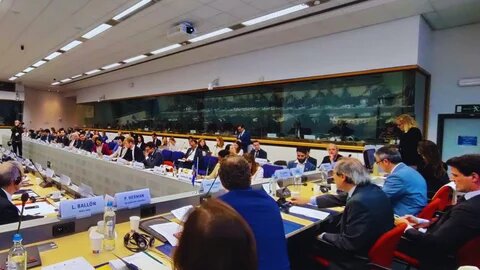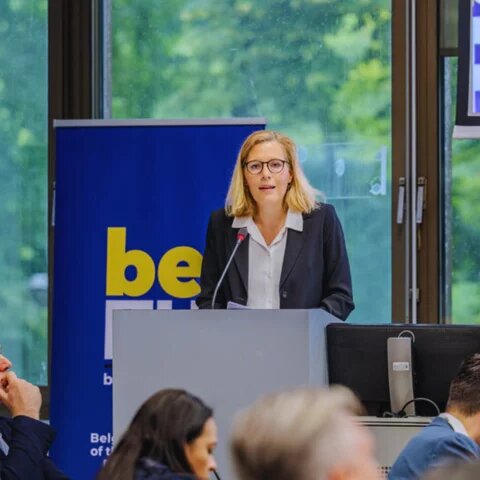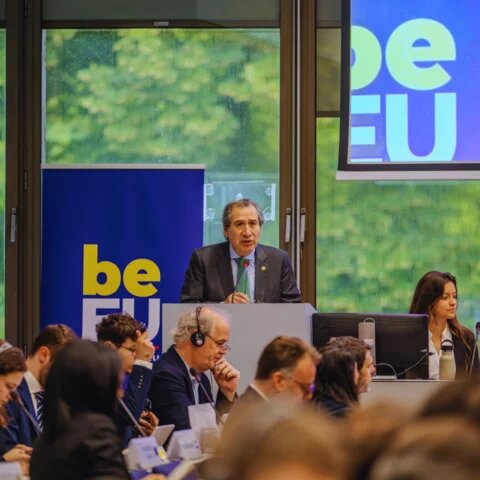
In the framework of the Crime Fighting Week organized by the European Union, the EU-LAC Foundation organized the seminar “EU-LAC Cooperation to Combat Illicit Maritime Drug Trafficking” in cooperation with the Belgian EU Presidency 2024 and the European External Action Service (EEAS).
The June 10 seminar aimed to promote a dialogue between key actors from civil society, governments and international organizations on the illicit maritime drug trade between the two regions, as well as to examine current and future forms of bi-regional cooperation.

Divided into several sessions, the event sought to divide the issues related to maritime drug trafficking into different perspectives. The first of these sessions, entitled “Main trends in the illicit maritime drug trade in Latin America, the Caribbean and the European Union”, sought to address questions related to the current geoeconomics of transnational crime and illegal drug trafficking, as well as the bilateral and multilateral context for greater and more effective cooperation, as well as possible existing good practices, challenges, advantages and limitations at the local, national and regional levels in the fight against drugs via maritime routes.

The second session, entitled “Logistics hubs, port cities and the fight against illicit maritime trade,” sought to exchange information on current challenges and best practices in cooperation and to help devise new bi-regional opportunities. It also sought to discuss trends and key elements, advantages and limitations of drug control in ports and logistics centers, as well as good practices in port management and security measures, as well as concrete and realistic ways to reform existing bilateral and bi-regional programs, and ways to strengthen existing multilateral cooperation, including mechanisms and institutions.
The treatment of the illicit maritime drug trade opened the door to address other issues related to the fight against globalized organized crime and criminal networks both in the EU and LAC, in particular the threat to democracy, money laundering, or social stability. But it also highlighted the limitations of ongoing projects. Being the first event on this topic organized by the Foundation, the seminar was able to address relevant issues for the bi-regional agenda that could eventually lead to more events as part of the preparation for the CELAC-EU Summit in 2025.